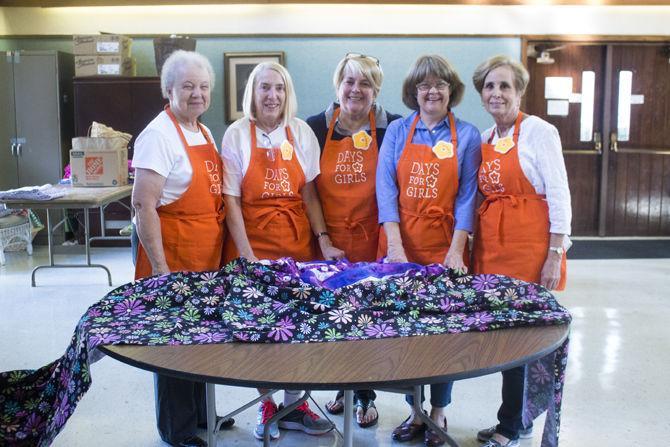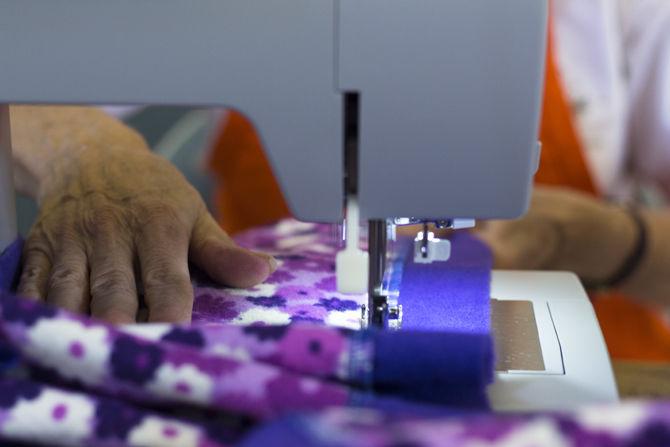Imagine you lived in a world where you not only had limited access to feminine hygiene products, but were ostracized and unable to attend school because of your period — this is the case for many young women in third-world countries. One Baton Rouge Days for Girls team is combating this stigma by supplying sustainable feminine hygiene products.
Since September 2015, the volunteer team at Ingleside United Methodist Church has gathered weekly to assemble nearly 400 Days for Girls kits that have been distributed across Nicaragua, Kenya and Uganda.
The Ingleside team began when church member Ev Auster stumbled across an article discussing a Days for Girls team in North Carolina when researching missions for her ladies’ groups. Once Auster presented her finding to the groups, volunteer and church member Sharon Rowe’s group decided to establish a team.
“We had the skills, the hands, and the time, and we wanted to make a difference,” Rowe said.
Days for Girls is a grassroots nonprofit organization developed in 2008 by founder and CEO Celeste Mergens, who realized the need for reusable feminine hygiene products and health education while working with an orphanage in Kenya, according to the Days for Girls website.
When Mergens asked the orphanage’s assistant director what the girls did as far as feminine hygiene, she received a shocking response — nothing. They waited in their rooms on a piece of cardboard for their periods to stop, often not emerging for days, according to the site.
In many third-world countries, feminine hygiene products are either too expensive or completely out of reach, meaning that many young women are stuck — missing several days of school — eventually dropping out because they get so behind.
Not only are they ill-equipped to handle their menstrual flow, but young women lack the education to maintain cleanliness during their periods. The Days for Girls kits are distributed by trained volunteers and missionary teams that educate recipients about their menstruation cycle, self-hygiene and personal safety.
Since its inception, Days for Girls has provided 640,000 women in over 100 countries with kits and materials generated by teams across the world.
The kits come in fun, decoratively patterned drawstring bags containing a wash cloth, bar of soap, two pairs of underwear, a Ziploc bag, eight cloth liners and two shields. The shield is similar to a panty liner, while the cloth liners allow women to avoid attention when they hang the reusable items out to dry. All materials are gathered by each team through donation or out-of-pocket expenses.
Countless yards of fabric are ripped, folded, ironed, pinned and sewed before any element of the kit is complete, Rowe said.
At the beginning of their journey, a member of the church who was attending a mission trip to Uganda approached the team about distributing 50 kits. For three weeks, the team worked tirelessly to assemble the sets. The end result was well worth the effort when they saw photos of the women with their kits in hand, they said.
“It was so moving and surreal to see the joy on their faces,” Rowe said “[After we saw the pictures] we knew we would continue making the kits.”
This labor of love has taken on countless hours, but for the volunteers it’s all worth it, Rowe said.
“We love them and want to care for them,” she said. “Having a period is a beautiful thing and not something to be ashamed of.
A Days for Girls volunteer sews together liners at 4264 Capital Heights Ave., on Tuesday, Oct. 31, 2017.








